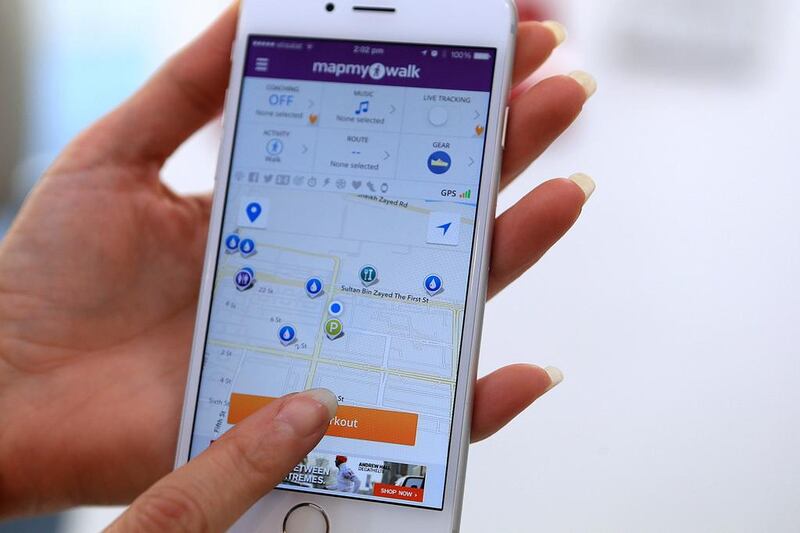ABU DHABI // As technology becomes further intertwined in our daily lives, experts are warning that exposure to cybercrime is increasing.
Gadgets now have the ability to interact with each other - by gathering and transmitting valuable information as we go about our daily lives, whether that be fitness routines, sleep patterns, diet, or even the front door bell.
They are part of a network called the Internet of Things, which connects devices, vehicles, appliances, or anything equipped with a sensor, software and network connectivity.
So, for instance, your home air-conditioning system can now be controlled from your mobile phone. The way your car interacts with a toll collection system is another instance.
“We are using these devices daily in our lives,” said Eman Al Awadhi, security compliance quality assurance manager with du.
As an example, she said activity/fitness trackers – a gadget for those who want to monitor their workouts – have built-in GPS that can map a route, monitor your heart rate and record sleeping patterns.
“If it’s compromised, somebody could easily locate where you are. You can imagine what that means if you’re targeted,” she said. “You might not even be aware of it but there is a tremendous amount of information being stored there.”
Another device she said that can be compromised are “smart” door bells, which use a camera and wifi to connect a homeowner to the person knocking on the door of their home.
From a mobile, that door can be unlocked - something a busy mother or father could find handy. But Ms Al Awadhi said the system is also vulnerable to cybercriminals who could try to hack their way into a home.
“Nobody can tell you we are 100 per cent secure or that this device is 100 per cent secure,” she said.
“I believe that attacks on Internet of Things devices are growing,” she added.
Earlier this year, it was reported that cybercriminals targeted users of the fitbit - a fitness tracker - gaining access to their online accounts and getting access to their GPS history.
The company has since begun advising users on how to secure their accounts.
But it is not just technological devices and personal data that are at risk. Experts are warning that cybercriminals are setting their targets on the larger-scale interconnected devices that make up the “industrial internet” - like manufacturing equipment and public utilities.
In December, Russian hackers allegedly caused a power outage in Ukraine, leaving 225,000 customers without electricity, according to reports.
This week, the US department of homeland security said the blackout was indeed caused by a cyberattack - and is believed by experts to possibly be the first known successful intrusion by criminals into a power grid.
John C Inglis, former deputy director of the US national security agency, said he does not believe the cybersecurity threat lies with a potential “cataclysmic event”.
Rather, he said, the main threat is a gradual loss of confidence in the internet and technology such as the Internet of Things to do things that create efficiency in our daily lives and carry the economy forward.
“If there is a reluctance to have that kind of open-ended sharing, than you lose the opportunity to compare, contrast and combine information in places like the internet to do those great goods,” he said.
esamoglou@thenational.ae






